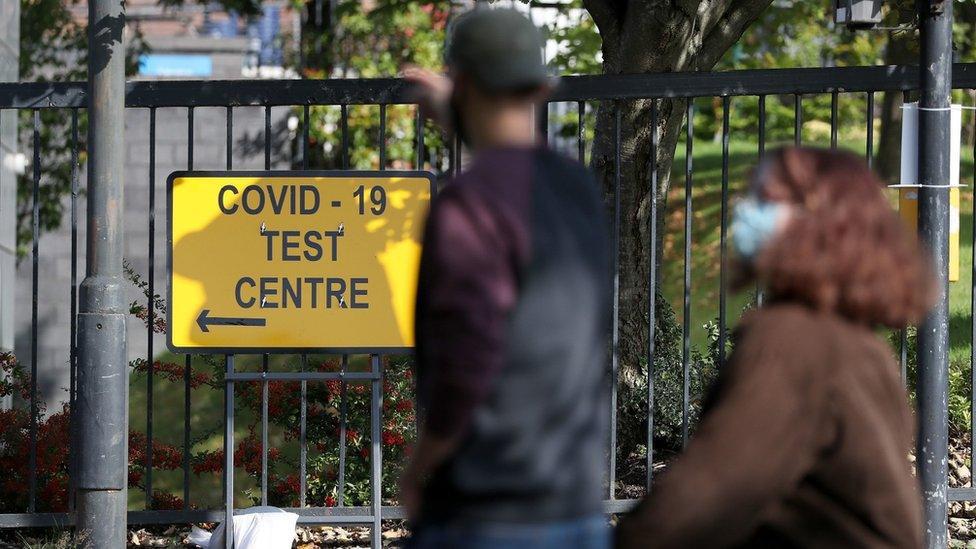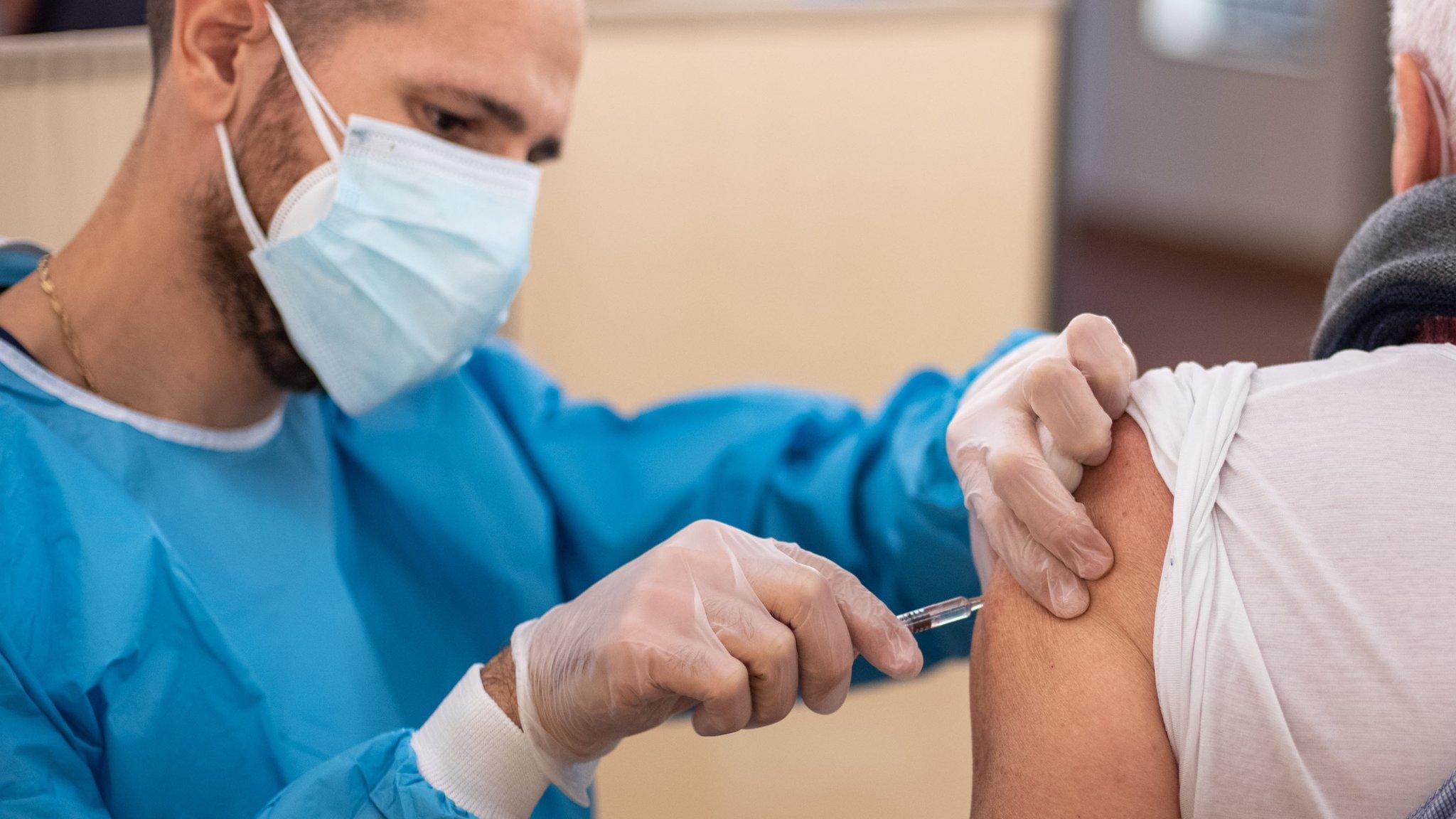Covid in Scotland: Easing of restrictions 'highly unlikely'
- Published
- comments
Covid in Scotland: FM says easing of restrictions "highly unlikely"
Scotland's Covid-19 restrictions are "highly unlikely" to be eased when they are reviewed on Tuesday, Nicola Sturgeon has said.
Tuesday will mark the first review of local measures under Scotland's new five-level alert system.
The first minister said the curbs currently in place had undoubtedly had an impact on the spread of the virus.
However, she said it was important for this to translate into a "significant and sustained reduction in cases".
Ms Sturgeon said she "would not expect areas to go down a level", and that "careful judgement" would be given to whether any councils had to move up a level.
Scotland began its new five-level system of coronavirus restrictions on 2 November, with most of the central belt in level three and much of the rest of the country in level two.
This is due to be reviewed on Tuesday. Ms Sturgeon said decisions would be made by her cabinet in the morning, then announced at Holyrood in the afternoon.
The first minister said the measures currently in place were "undoubtedly having a positive impact" on the spread of the virus, with the increase in cases having "pretty much levelled off".
The number of people in hospital with the virus fell by 19 on Monday, to 1,226, while the number in intensive care dropped by six to 105.
However, Ms Sturgeon said there was a "very real concern" that overall case numbers were not yet falling.

She said: "Although there are positive signs, it's really important we start to see these translate into significant and sustained decline in Covid cases and we cannot be sure we are yet seeing that.
"So I think it is highly unlikely that we will see any significant easing of restrictions announced tomorrow.
"We can't afford for cases simply to plateau at their current quite high level - we need them to fall, otherwise we will be badly exposed by any rise in cases as we go further into winter."
There has been speculation that some areas, including Glasgow and Fife, could move up a level in the alert system, while some local leaders in areas like the Borders and Aberdeen have called for their levels to be reduced.
When deciding on levels, ministers consider a range of data on case numbers and hospital admissions as well as issues like travel patterns and how closely local areas are interconnected.

Ms Sturgeon said: "It's not just the data on any given day we look at, we have to look at the trend and satisfy ourselves before any area moves down a level that a downward trend has been established and we think it is sustainable.
"Moving down a level is not a neutral act. It leads to opening up, and that leads to an increase in transmission, so we have to make sure the levels there are low enough to cope with that.
"I would not anticipate much easing of restrictions when we announce the first review outcome.
"I would not expect areas to go down a level. We are looking at whether there is a case for any part of the country to go up a level.
"We want to avoid that, but we have to make careful judgements."
Asked specifically about Glasgow - which accounted for 363 out of the 912 new cases registered on Monday - Ms Sturgeon said there had been a "levelling off" in cases locally.
However, she said ministers had to consider whether the current restrictions "allow us to continue to move that to a declining position", or whether "something more" had to be done.
'Tentative hope'
Ms Sturgeon said she would announce on Tuesday whether the current travel advice barring people from moving in or out of level three areas would be backed up by new laws.
And she said she was "not anticipating" a return to nation-wide restrictions, although she said she could not rule this out in future.
The first minister also welcomed "good news" about vaccine development, as it emerged that one under development can prevent more than 90% of people from getting Covid-19.
She said: "There is a long way to go of course, but this is news that should give us all some tentative hope - and it should give us some motivation to keep our efforts up in the meantime to keep the virus in check."
Meanwhile, the government is reviewing the status of anyone licensed to own a mink in Scotland after concerns about a new mutated strain of coronavirus linked to mink farms in Denmark.


- Published9 November 2020
